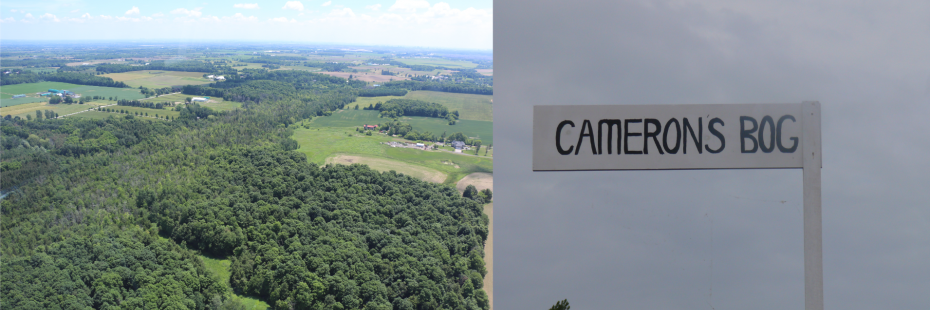 Assistant Professor
Assistant Professor
Remote Sensing, Unmanned Aerial Vehicles, Geographic Information Systems, Peatland Biogeochemistry, Root-Soil-Microbial Interactions
School of the Environment
University of Windsor
401 Sunset Avenue
Windsor, Ontario, N9B 3P4, Canada
(519) 253-3000 Ext. 2183
Memorial Hall Room 208
cameron.proctor@uwindsor.ca
Education
- Ph.D. 2017. Remote Sensing, University of Toronto, Toronto, ON, Canada
- M.Sc. 2011. Spatial Information Systems, University of Toronto, Toronto, ON, Canada
- B.Sc. 2004. Environmental Science, Trent University, Peterborough, ON, Canada
Awards
- 2019. NSERC Postdoctoral Fellowship
- 2013. NSERC Alexander Graham Bell Canada Scholarship Doctoral
- 2011. ESRI Canada Scholarship (QEII-GSST)
Courses
- Remote Sensing
- GeoStatistics
Principal Research Interests
I work to improve our understanding of carbon and nutrient transfers through plants and their influence on methanogenesis or carbon sequestration in peatlands. Peatlands are an efficient carbon store, yet climate change is predicted to alter the interexchange network between plants and soil microbes that is responsible for processing up to half of all photosynthetically captured carbon. Determining the coupling between root-soil-microbial components and their dynamic interactions calls for integrative research strategies, such as pairing remote sensing surveys of vegetation traits, with powerful numerical modelling tools that simulate root growth and function. My belief is that below ground carbon deposition is inherently spatial, and requires meshing drivers and root biomass to determine process rates. Specifically, the role of plant roots in methanogenesis at the landscape scale relies upon the quality and complexity of the root upscaling parameters, which is why I spend my time developing novel techniques in the geospatial sciences, including Unmanned Aerial Vehicles, remote sensing, and GIS.
Ongoing Research Projects
- Investigating the efficacy of remote sensing for tracking root dynamics in peatlands
- Developing Unmanned Aerial Vehicles and close range hyperspectral scanning technologies
- Quantifying the interface between plant roots and methanogens at the landscape scale using remote sensing
- Using lab, field, and controlled experiments to investigate the function significance of root borne carbon inputs
- Exploring plant decomposition using remote sensing as a climate change indicator
- Improving models of peatland biogeochemistry by improving simulation of belowground processes

